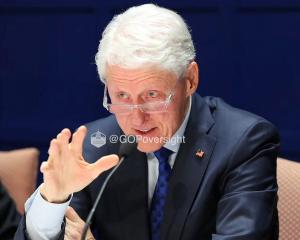Barack Obama and Hillary Rodham Clinton have made last-ditch appeals for votes ahead of North Carolina and Indiana's Democratic presidential primaries, conceding that regardless of who wins those crucial contests, their bruising battle was likely to drag on for weeks.
In a day of frenetic campaigning, Clinton and Obama argued over her plan to combat surging gasoline prices - a key issue for voters hard hit by the struggling US economy.
The former first lady assailed her rival for his opposition to the plan to suspend the federal gasoline tax, and released a new TV commercial in both states saying she is "the candidate who is going to fight for working people."
The pitch was clearly aimed at working class voters - an important block in both states and the same demographic that helped her secure a convincing win in Pennsylvania on April 22.
Obama has accused Clinton of pandering with the proposal, and many economists are against it.
With polls showing Clinton chipping away at Obama's advantage in North Carolina, both candidates darted back to the state for some last-minute campaigning. It was a brief diversion from the more competitive Indiana, where each planned to return by nightfall. At stake are 187 Democratic delegates in the two states.
Obama remains the front-runner and leads Clinton with a seemingly insurmountable delegate count - 1745.5 to 1607.5, with 2025 needed to win the nomination. He has struggled to move past a controversy over his former pastor's incendiary comments. But, Clinton says she is the Democrats' best hope for winning the White House, in part because she is more popular with the party's working-class base.
Clinton was leading Obama 49 percent to 43 percent in Indiana according to a Suffolk poll with a margin of error of plus or minus four percentage points. But, Obama was seen as more popular, with 58 percent of respondents giving him a favourable rating compared with Clinton's 53 percent.
The two Democratic White House hopefuls expressed confidence in their chances of winning the two contests, but refused to predict that voting would be decisive enough to end the protracted nomination fight that has stoked concerns among party leaders of crippling disunity ahead of the November general elections against John McCain, the presumptive Republican nominee.
They both saw the race continuing through June, when the last nomination contest is held.
Ahead of their campaign stops, the two appeared on the morning television news shows.
On NBC's "Today" show Monday, Obama predicted that after the final contests on June 3 in Montana and South Dakota, "We will be in a position to make a decision who the Democratic nominee is going to be," he said. "I will be the Democratic nominee." Later, campaigning in both states, Obama focused on job losses, falling home values and soaring energy costs.
He accused Clinton of practising "me too" politics in joining McCain in calling for a temporary suspension of the federal gas tax, describing the debate as a "perfect metaphor for what's going on in Washington," an exercise in political expediency over common sense. Obama claims the tax suspensions will just encourage the energy industry to raise prices to close the gap.
In a CBS News/New York Times poll released Sunday, 49 percent of voters said they thought lifting the gas tax for the summer was a bad idea, while 45 percent thought it was a good idea.
"I think a lot of people don't understand my plan," Clinton responded on CBS' "The Early Show." "I want to the oil companies to pay that US$8 ($NZ10.36) billion this summer instead of having the money come out of the pockets of consumers and drivers." The federal gasoline tax of 18.4 cents per gallon is much lower than taxes in other countries - particularly in Europe. But with Americans accustomed to paying some of the lowest gasoline prices among developed nations, the recent spike in retail prices has been painful for many.
Retail prices averaged about US$3.57 per gallon last month, about 27 percent higher than April 2007. Six in 10 Americans say gas prices have caused financial hardship for their family, including one in five who said it is causing severe problems, according to a CNN-Opinion Research Corp. poll released on Monday.
Obama was trying to recover from a rough patch and put Clinton away after a difficult 16-month fight that has split the party. The former first lady, meanwhile, hoped to hang in the race with a win in one, maybe both states. Her aides lowered expectations for a victory in North Carolina, where Obama is favoured, but sounded more optimistic about Indiana, where demographics seem to tilt in her direction.
Clinton's win in Pennsylvania last month renewed her momentum. But the delegate math works to Obama's advantage, and it will be hard for Clinton to overtake him. This means the decision will likely come down to superdelegates, the nearly 800 party leaders and others who may side with whomever they like at the August convention.
TV ads, automatic phone calls and mailed literature flooded both Indiana and North Carolina while thousands of volunteers for both candidates canvassed countless neighbourhoods knocking on doors. With far more cash on hand, Obama outspent Clinton by an estimated US$4 million to US$5 million - roughly a third more - on TV ads in both states combined.
Both candidates had punishing schedules in the final hours. Clinton was holding five events across the two states, while Obama was jetting from Indiana to North Carolina and back again over a several-hour span. Both were scheduled to end their day well into the night.
Obama won an extremely close caucus Sunday in Guam, but because of the way the party apportions delegates, each candidate received two delegates.














